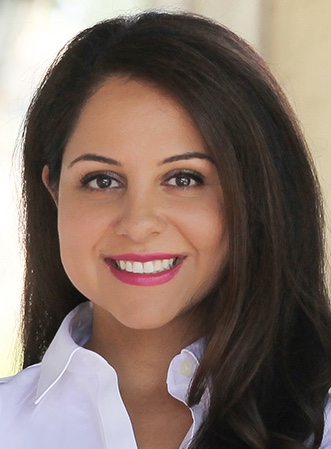Dallas real estate executive Jared Caplan believed he found the perfect franchise investment in 2015 in Home Care Assistance, an in-home healthcare service that catered to wealthier seniors, that would allow him to start, build and operate a small business under an internationally recognized, premium-branded company.
Caplan claims he invested millions of dollars to make his franchise successful because of critical promises made to him personally and contractually by HCA’s then-chief executive, Lily Sarafan, who is now the chair of the Stanford University board of trustees, a member of the Council on Foreign Relations and on the boards of directors of Instacart and Thumbtack.
But in a 22-page lawsuit filed July 17 in Dallas County, Caplan claims it was all a bait-and-switch scheme to defraud him of his investment of money and time.

“Unfortunately, Sarafan’s personal success, at least in the last 10 years, has been built on fraud and preying on smaller investors such as Mr. Caplan,” the lawsuit states. “Sarafan systemically misrepresented or obfuscated key facts to lure potential franchisees such as Mr. Caplan into investing their time, money, and reputation into expanding HCA’s international network of revenue-generating offices.”
Robert Hernquist, a lawyer representing Sarafan, said he believes the court will dispose of Caplan’s lawsuit.
“For more than a year, Mr. Caplan has threatened to file baseless lawsuits against HCA and its former officers — including Ms. Sarafan — and to publicize those claims unless the company agreed to his demands to acquire his business,” said Hernquist, who is a lawyer at Howard & Howard in Las Vegas. “We are disappointed that Mr. Caplan has followed through on those threats and filed this vexatious lawsuit based on events that occurred more than a decade ago. Even worse, he has apparently made an effort to publicize his spurious lawsuit before Ms. Sarafan has even been served with the complaint.”
The lawsuit claims that Sarafan convinced Caplan to invest $49,950 in acquiring an HCA franchise in 2015 and $64,950 in purchasing a second franchise in 2016.
“After signing the franchise agreements, Mr. Caplan spent the last 10 years investing in and building one of, if not, the most successful in-home care businesses in the Dallas area,” the lawsuit states. “To help build his business, Mr. Caplan took out more than $4 million in loans to grow his franchise based on the claims that Sarafan had made to him and the other potential HCA franchises.”
Court documents show that Caplan’s franchises recorded $4.88 million in revenue in 2023.
Lawyers for Caplan claim that Sarafan “secretly built a competing corporate model to replace the HCA brand and franchising system” to undermine the value of the existing HCA franchises.
The lawsuit accuses Sarafan of fraudulent inducement, negligent misrepresentation and unjust enrichment by trying to force Caplan and other franchise owners to sell their operations back to HCA at greatly discounted prices, which Sarafan rebranded as TheKey.
“Sarafan failed to disclose that, as part of the negotiations, Sarafan and [private equity firm] Summit Partners had already developed a plan to acquire an international network of offices at steeply discounted prices,” the lawsuit states. “Sarafan and HCA would induce individuals into investing in HCA franchises and then, once the franchisees had incurred all the risks and costs associated with establishing new offices, HCA would force sale of the franchise back to HCA at artificially depreciated prices.”
Johnston Clem Gifford partner Kodie Bennion is representing Caplan.
The case is Caplan v. Sarafan, No. DC-25-11447.
